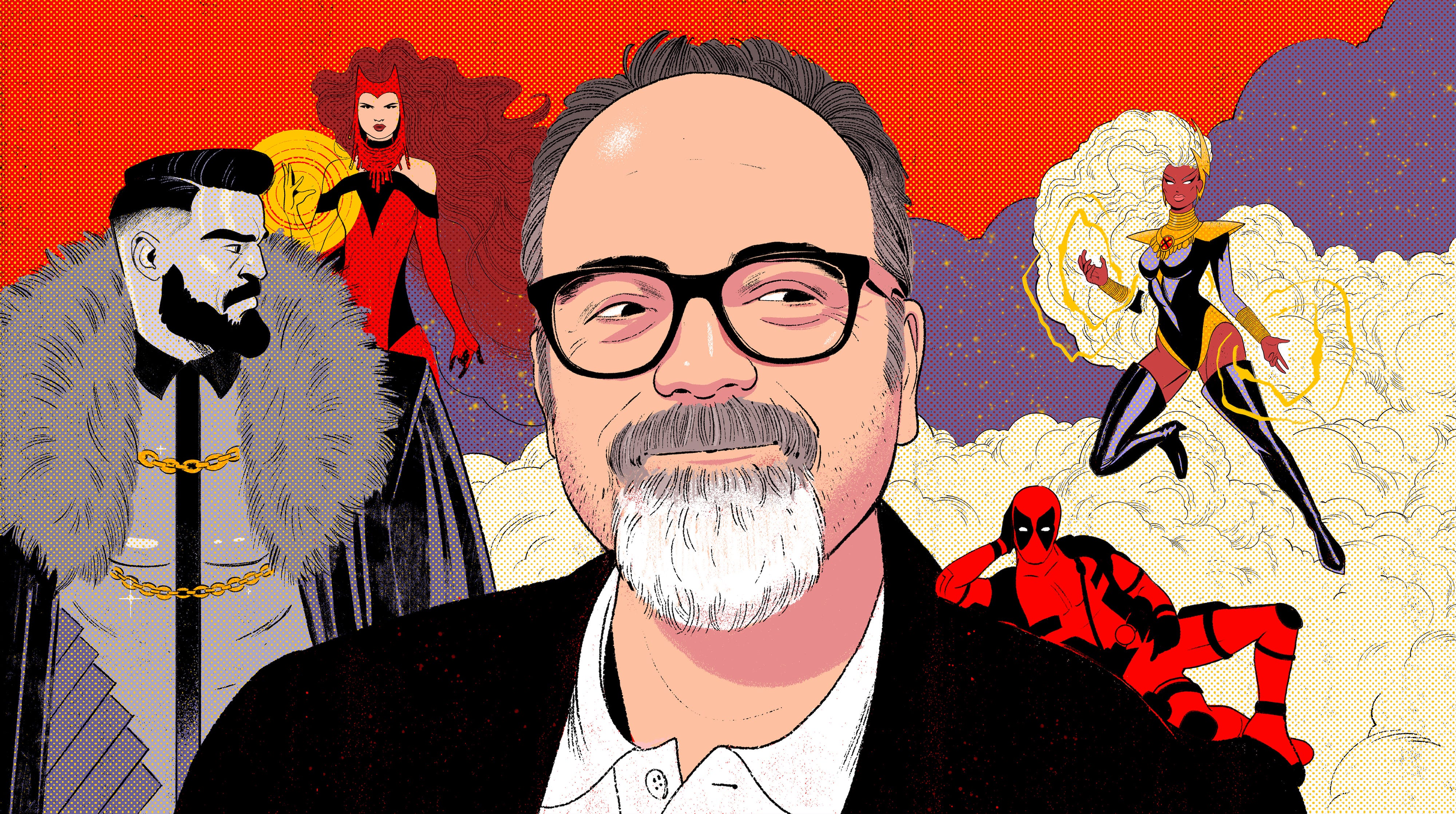Gerry Duggan refuses to spoil 'Deadpool 3'
The comic writer behind X-Men, Iron Man, Batman, and a certain foulmouthed superhero reflects on the life-changing luck that still powers his career.

It’s the legend of Quentin Tarantino in comic book form.
Most everyone who cares about movies has heard the story of how a young QT went from working in a Manhattan Beach, Calif. video store to writing and directing iconic films like Pulp Fiction and Once Upon a Time… in Hollywood.
Well, Gerry Duggan’s path wasn’t all that different. The writer went from working the counter at Golden Apple Comics in Los Angeles to writing for some of the comic industry’s biggest names, including Deadpool, Iron Man, the X-Men, and Batman.
“It’s true. I came out here from New Jersey with a bag of clothes and a month's rent,” says Duggan. “There was no ‘Help Wanted’ sign at Golden Apple. I just walked in and asked if I could leave my number in case they were hiring. The owner at the time, Bill Liebowitz, said, ‘I’ll try you out for two weeks.’ That became two years. It was a life-changing bit of luck.”
Originally an aspiring late-night comedy writer, Duggan began traveling with Golden Apple to San Diego Comic Con, where he plugged into the comics community and was reminded of how much he had always loved the medium.
Alongside friend and comedian-actor Brian Posehn and writer-artist Rick Remender, Duggan got his foot in the door with The Last Christmas for Image Comics. (“A western-horror-comedy about Santa after the apocalypse,” he says.) That opened the gates, and it wasn’t too long before Duggan held the keys to some of Marvel and DC’s highest-profile titles.
Here’s what he had to say about the path that led him to being casually name-checked in Deadpool 2.
What is your strangest Con story?
It's probably sleeping on the floor of tiny hotel rooms with your actual heroes. We’d stay four or five to a room—all people trying to break into comics—and after the Hyatt bar closed the party would move up to one of the rooms. One year, Frank Miller and Dave Gibbons were there. I was probably the most surreal moment of my Comic Con history.
What’s one of the hidden perks of working at a comic shop?
Honestly, being able to read everything. That's actually the real secret for being successful is being a good reader. There are some quiet nights at the shop where you can tear through everything. It becomes your library.
Can you spoil Deadpool 3?
[Laughs] Marvel security is a potent, powerful group of rogues and assassins. And Zeb [Wells] is a really talented writer, and so are Paul [Wernick] and Rhett [Reese], and, obviously, Ryan [Reynolds]. And I know a tiny smidge of something, and I think it's going to put a smile on a lot of people's faces.
Right now, I'm just worried about this summer's X-Men Hellfire Gala. I’ve got to print 90 pages of comic in the next week, so that's where my head's at. But I can't wait to sit down and just enjoy the [Deadpool] movie as a fan.
Is there a character you’re still dying to write?
I've been so lucky. I mean, in the last year I've got to write X-Men and Batman. Not to mention I don't even know who the last writer was to write X-Men and Iron Man at the same time. You might have to go back to Stan Lee in the sixties. I'm really living the dream.
Still, it'd be nice to write Superman someday. I've gotten a chance to do a lot of things, but I've never written a single balloon for Superman and he's one of my favorites. I think he's also one that is probably more relevant now than people might think.
What is something you’ve learned about the way the comics industry works from the inside?
The Catch-22 of breaking into comics is that you have to already have a comic to get in. When we talk to young creators about breaking in, we talk about how breaking into comics is a little bit like breaking out of jail. When you succeed at doing it, they kind of brick up the way that you got out. And so you're forced to sniff out a different way to break in.
What do you turn to for inspiration outside of comics?
I have more than a passing interest now in photography. I've found that once you're doing something you love for a living, there's a cost associated with that. I kind of can't turn off the creator brain when I sit down to look at a comic. So photography has kind of scratched that itch of something I can do that I’m not necessarily trying to monetize. Although I did recently do a Kickstarter for a photography book—honestly, it’s just something I want to have so I can hand my son a book rather than 20 hard drives.



Nice to chat!